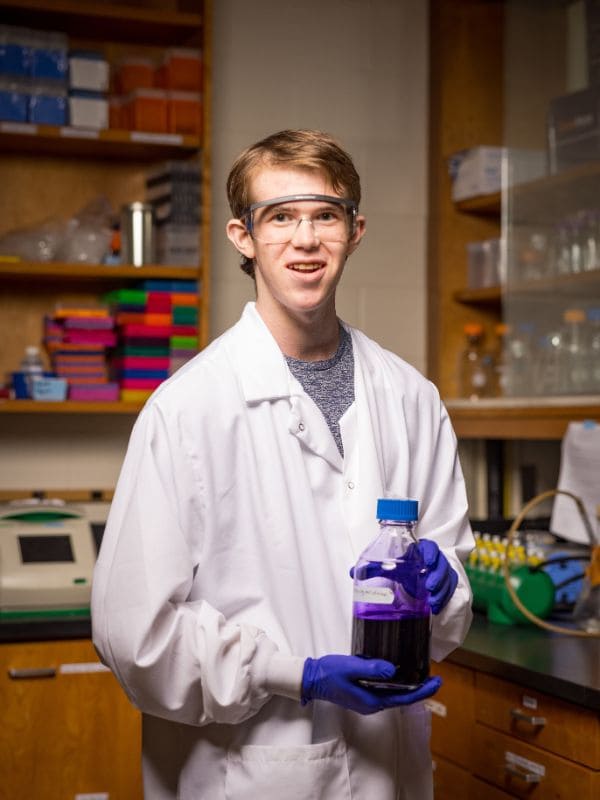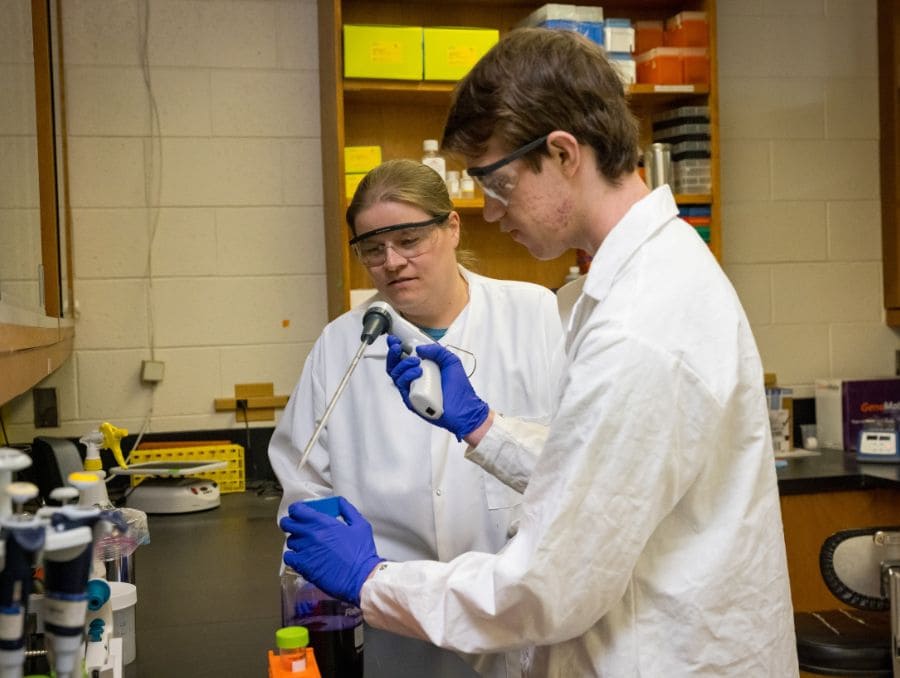As a high school student, Eli Mann didn’t expect a science event to shape his future. That changed the moment he stepped into the University’s Biotechnology Symposium. There, while presenting his experiment on fluorescent proteins and seed germination — inspired by his passion for plants — something clicked that launched his path further into science.

His journey from student to scientist-in-training wasn’t by chance. It was carefully nurtured during his four years of high school by his teacher, University alumnus Andrea Jydstrup-McKinney ’09 (biotechnology), who now leads the biotech specialization at West Career and Technical Academy in Las Vegas. A graduate of the biotechnology program’s accelerated bachelor’s-to-master’s track, Jydstrup-McKinney was Eli’s biotechnology teacher from 9th through 12th grade.
The role of mentorship in student success and STEM career readiness
“She wasn’t a typical teacher,” Mann said. “She came from industry and connected what she did directly to what we were learning. Most of the experiments I did in high school were at a high college level, giving me a head start on my research at the University.”

Jydstrup-McKinney estimates five to 10 of her students have joined the biotech program in the past 13 years. Mann is one of them, now a sophomore, where he has traded seed trays for Petri dishes and is researching mosquito-borne diseases.
Interest in the program has grown steadily, thanks in part to outreach, mentorship and events such as the annual Biotechnology Symposium. Launched soon after the biotech program’s founding in 2001, the symposium has grown into a major event hosted in part by the Nevada Center for Applied Research. Held in May at the School of Medicine’s Center for Molecular Medicine, this year’s 20th annual gathering featured student research, lab tours and faculty talks. It’s designed to show students what’s possible and connect them with people and tools to get there.
High school programs and internships help students explore biotechnology careers
Early exposure is key. Last year, the program began hosting a four-week Summer Research Internship that places high school students in research labs, where they shadow faculty, explore biotech careers and contribute to real-world research, all while earning college credit and gaining confidence in the lab.
The program has become a launch - pad for scientists, doctors, patent lawyers, educators and entrepreneurs. For students like Mann, it’s not just a head start – it’s a future taking shape with every experiment.
